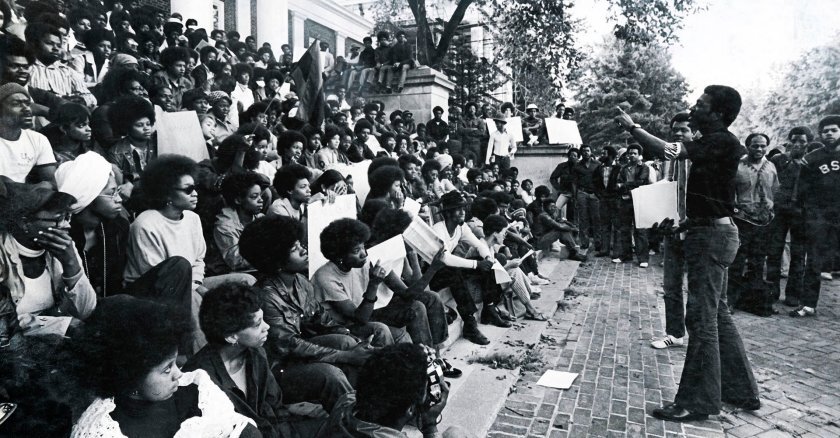The Atlanta team won the state championship without its star player, but the suspension was devastating to him. And I surmise that the free use of the N-word that the Rome players are accused of has something to do with the environment of racial animus brought on by Georgia politicians’ attacks on African American studies, banning books by Black authors and spreading a big lie that African Americans helped steal the 2020 election from former President Donald Trump. We know as well that U.S. Rep. Marjorie Taylor Greene, whose district encompasses the Rome area, has engaged in rhetoric that has contributed to racial tensions in Georgia and throughout the country.
I see a relationship connecting right-wing attacks on Black studies, voting rights, abortion choice and LGBTQ rights. This is why we are hearing more reports of violence against disempowered individuals, whether the chokehold death of a homeless Black man on the New York City subway or a wave of killings of transgender women in Georgia and elsewhere.
Animus against Blacks and other disenfranchised people takes many forms, and far too often it is directed against young people. In Tulsa, for example, a 17-year-old transgender student described his predicament as “traumatizing” as he waited to find out if he would be able to bring himself to participate in his high school’s graduation exercises. As the Associated Press reported, he worried that his school “might use his ‘deadname’ — the name he was given at birth but no longer uses — on his diploma and during the ceremony instead of his legally changed name.” I understand this concern precisely and personally: African Americans who have changed their names legally often refer to the names given them at birth as their “slave names.” No Black person who has gone to the trouble of changing their name would want to be called by their slave name.
I suspect what the Tulsa student and other transgender youth are going through is related to the more than 800 anti-LGBTQ bills that the Human Rights Campaign Foundation is tracking across the country. Among those are bills passed by the Oklahoma Legislature and signed into law by Gov. Kevin Stitt that ban gender-affirming medical care for minors and make it a felony for health-care workers to provide children with treatments that include puberty-blocking drugs and hormones.
In the past I have written about the undemocratic implications of state laws that limit the teachings of African American studies and that discriminate against LGBTQ students. But I am compelled here to speak out more directly and forcefully about the effects that gender-related laws may have on trans students’ ability to receive the medical and psychological help they need. For the sake of scoring political points, no politician at any level of government should be in the middle of a health decision between families and their doctors. This notion once was standard Republican orthodoxy.
I am aware that part of the argument of the right wing is that they are protecting children from other children. I can only say that being a father of two wonderful daughters, they’ve opened my eyes to their reality — that young people need us to get out of the way and accept that gender fluidity is here to stay.
It goes without saying that race-baiting and trans-bashing in many instances animates an extremely conservative base, but this strategy has limited appeal. It won’t win national elections. Beyond that, it is just not right to attack vulnerable children who we as adults are supposed to protect.
As a former college president, I know too well that my first job, above all, was to protect all students, and particularly the vulnerable ones like LGBTQ and minority students. Since leaving my post as president in 2018, I often have asked myself: How did we arrive at a place where Americans who are not like us, or who have limited income or whose parents speak with a Spanish accent or who have a child like I do who identifies as queer, are seen as less American? None of our children deserve to be treated like second-class citizens. And our kids, who are fragile to start with, need us to protect, direct and love them — not make their journey to adulthood more difficult than it already is.
I have one final thought, in the form of a request. As public officials jockey for power and control, I am asking them to fight to the bloody end if they like but leave children out of the scrap. Our kids should not be political footballs. Whether they are straight, gay, trans or of any race or ethnicity, they deserve our love and support. Today’s impressionable young Americans will tomorrow ascend to the leadership of this nation, possibly becoming state legislators, mayors, governors and even presidents.
Understanding this, we should keep in mind what the late South African President Nelson Mandela, who spent 27 years of his life in a prison standing up for his beliefs and for the freedom of all South Africans and especially his Black compatriots, once said: “There can be no keener revelation of a society's soul than the way in which it treats its children.”
Governing's opinion columns reflect the views of their authors and not necessarily those of Governing's editors or management.
Related Content














